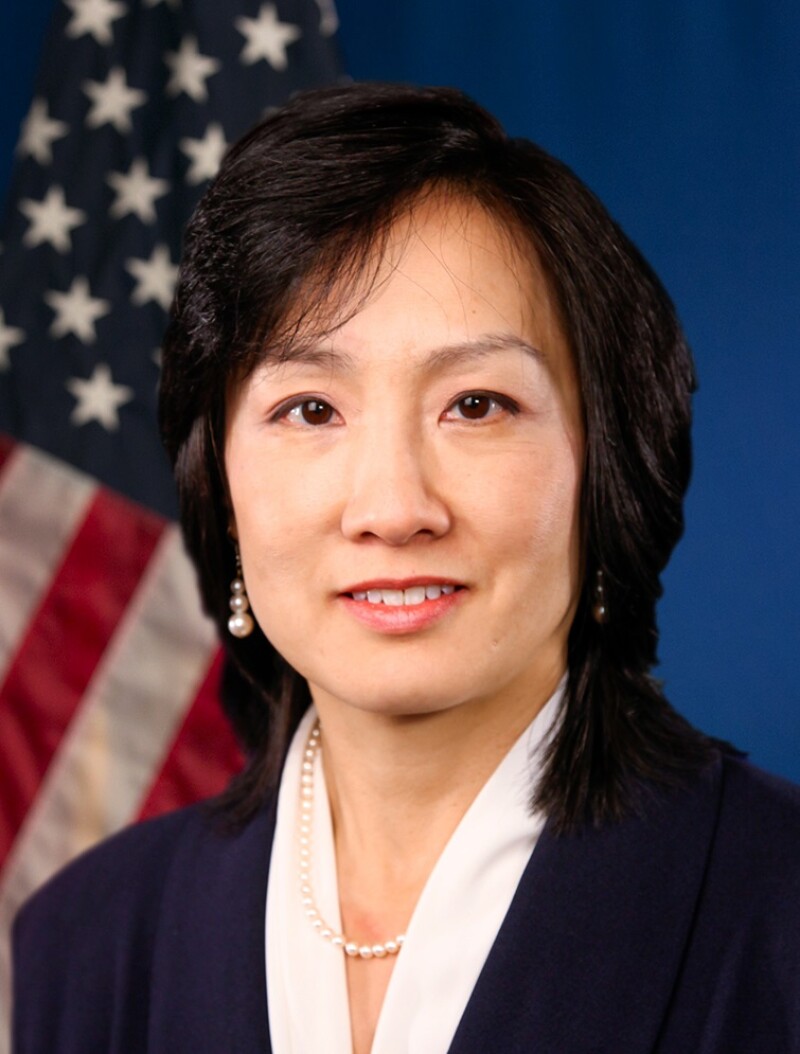
Lee was responding to a question Todd Dickinson of Novak Druce, who was in the audience and expressed frustration about the patentability of software and business method patents after the Supreme Court’s Alice decision. Dickinson pointed out that of the last approximately 20 cases decided by the Federal Circuit on Section 101 grounds, all but one found the patent at hand ineligible. Similarly, he said there have been twice as many patents rejected on 101 grounds since Alice and that all covered business method reviews with a final written decision have resulted in invalidation.
Lee agreed that there are still many unanswered questions about Section 101 jurisprudence post-Alice. She stressed that the Supreme Court made a point of saying that software and business method patents were not per se patent ineligible, and that the USPTO, like practitioners and the courts, are looking for clarity.
“The USPTO is at the front lines of this - we’re issuing guidance, we’ve gotten a lot of input from the public, but we all hope for greater clarity on an issue that is extremely complicated,” she said. “I think we’ll see a lot of developments, and I hope to see a lot of developments, in the foreseeable future in this area because there’s still quite a bit of ambiguity.”
Continuing the AIA’s work
Lee also spoke about the patent reform measures working their way through Congress. She spoke out in support of provisions to cut down on forum shopping, limit discovery in certain instances to prevent driving up costs and fee-shifting. On the last issue, she suggested that reform critics were overstating the effect fee-shifting rules, such as those in the Innovation Act, would have on patent holders with reasonable claims, even if those claims do not necessarily pan out in court.
“I don’t like to refer to it as a ‘loser pays’ system, I like to refer it as an ‘abuser pays’ system,” she said. Rather than fundamentally changing a part of the US legal system as some have argued, fee shifting proposals such as those in HR 9 [The Innovation Act in the House of Representatives] merely institute a level of “financial discipline” on both sides to prevent abuse. Lee stressed that the fee shifting provision will apply to a defendant as well if it unreasonably defends a case for longer than it should.
Perhaps in response to critics who argue that further calls for changes to the patent law are premature given that the effects of the AIA are still being discovered, Lee said that reform bills such as the Innovation Act deal with more with litigation, rather than the substantive patent law. In this sense then, patent reform efforts are continuing what the AIA started. She argued that many of the abuses are a result of quirks in the American litigation system and its high costs, rather than loopholes in the patent laws.
“In the AIA we made a lot of good progress, we harmonised with the rest of the world going from first to invent to a first to file system…we got the PTO the ability to set its own fees and we got a whole set of post grant proceedings which have been pretty effective as a quality check,” she explained. “But the litigation-related concerns didn’t get addressed in the AIA and I think that’s an area that we’re all focused on.”
“I think what you’re seeing in the legislation currently before Congress is a lot in there dealing with streamlining discovery and requiring greater notice and greater specificity in the pleadings… and I think it’s right for Congress at this point to be focusing on litigation-related concerns.”
Video for the event, which included a panel discussion with Lee, Victoria Espinel of the Business Software Association, Michael Waring of the University of Michigan and moderator James Lewis of the CSIS can be found here.










